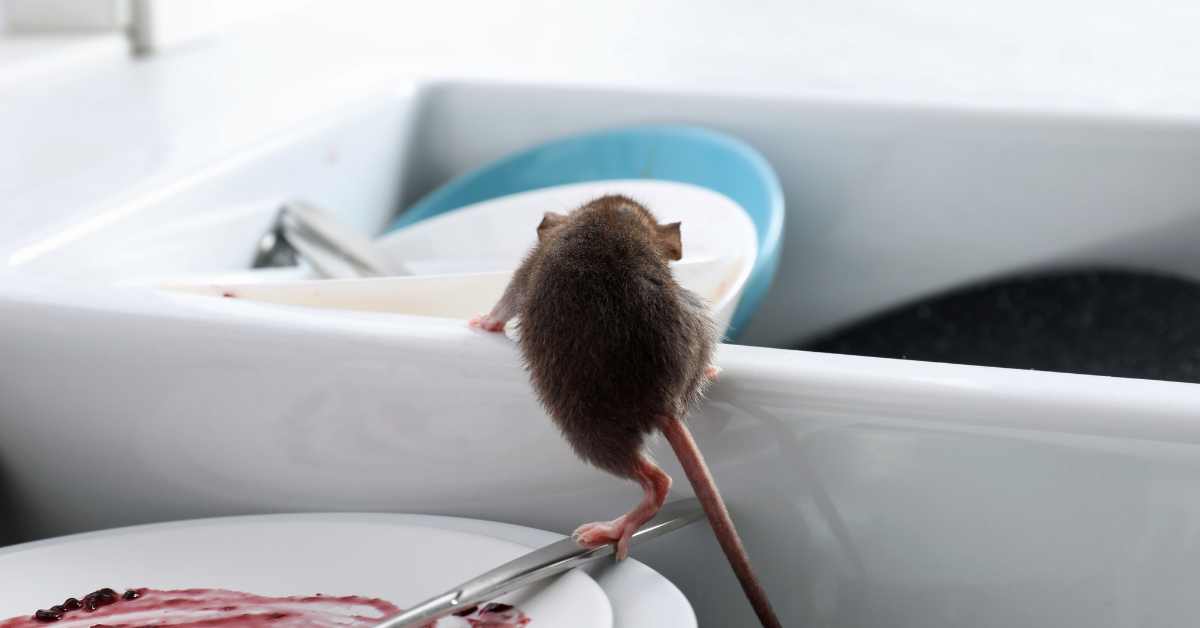Rodents are a common concern for homeowners across the Greater Houston area, where warm temperatures, frequent rainfall, and dense neighborhoods create ideal conditions for mice and rats to thrive. These pests are not only destructive to homes but also pose health risks to families, especially households with children or pets. Once inside, rodents may contaminate food, damage electrical wiring, chew through insulation, and introduce bacteria through their droppings and urine.
Because they can squeeze through gaps as small as a dime, rodents often find easy access into homes, where they can remain hidden for long periods. Prevention is the most effective approach to managing rodent issues, and taking a few simple, consistent steps can make a noticeable difference.
If you’ve noticed unusual scratching noises, droppings, or signs of gnawing, it may be time to act. Schedule a rodent control service with our team or call us at (832) 864-9713 before the problem gets worse.
1. Seal Entry Points Around the Home
Rodents are skilled at finding even the smallest openings. Once they find a way in, they can create nests and multiply quickly. Inspecting your home’s exterior for possible entry points and sealing them properly is one of the most important steps in rodent prevention. Here are common access points to inspect and address:
- Gaps around windows and doors
- Openings around utility pipes, HVAC lines, and vents
- Cracks in the foundation or siding
- Spaces under garage doors and crawl spaces
Use materials that rodents cannot chew through, such as steel wool combined with caulk, metal mesh, or cement. Avoid relying on foam sealants or soft fillers alone, as they are easily chewed.
Taking the time to properly block access will significantly reduce the chances of rodents finding their way indoors. Regular seasonal inspections can help maintain these barriers over time.
2. Eliminate Easy Access to Food
Rodents are attracted to homes where food is easy to access. Human and pet food, crumbs, and even unsecured trash can serve as steady sources of nourishment for rodents. To reduce food-based attractants:
- Store dry goods like rice, grains, and cereals in sealed, airtight containers
- Wipe down countertops and sweep floors regularly
- Avoid leaving pet food out overnight
- Rinse recyclables before disposal
- Keep kitchen trash covered and take it out regularly
Reducing food availability helps break the incentive for rodents to linger or return. It’s especially important to keep an eye on pantry corners and behind appliances where food particles may go unnoticed.
3. Minimize Indoor Clutter and Hiding Spots
Rodents often hide in dark, undisturbed areas. The more cluttered a space is, the more opportunities they have to remain hidden and undetected. Piles of paper, storage boxes, and old furniture can serve as ideal nesting locations. Focus on tidying the following areas:
- Garage shelves and corners
- Attics and basements
- Closets with infrequently used items
- Storage under sinks or behind cabinets
Organizing these areas not only discourages rodents from settling in but also helps you identify early signs of activity, such as droppings or shredded materials used for nesting. Keep storage elevated and use plastic containers instead of cardboard, which rodents can chew through.
4. Maintain Your Outdoor Spaces
The condition of your yard and exterior can influence rodent activity around your home. Rodents may initially nest outside in wood piles, debris, or overgrown landscaping, and later migrate indoors in search of warmth or food. To make your outdoor areas less inviting to rodents:
- Keep grass trimmed and remove overgrown shrubs
- Store firewood at least 20 feet away from your home and elevate it off the ground
- Dispose of leaves, mulch piles, and other yard waste promptly
- Ensure outdoor trash bins have tight-fitting lids
- Check gutters and drainage areas for standing water
Reducing shelter and nesting areas near your home’s exterior can discourage rodents from lingering close to the structure or trying to enter.
5. Schedule Preventive Pest Control Services
Even with routine home maintenance, rodent activity can sometimes go unnoticed until it becomes a larger issue. That’s where professional insight can be valuable. A licensed pest control provider can identify high-risk areas, early signs of infestation, and conditions that may attract rodents to your property.
At Aviator Pest Control, we provide targeted rodent control services tailored to Houston homes. Our approach includes detailed inspections, exclusion techniques, and treatment plans that prioritize safety for your family and pets.
Regular professional visits can help you stay ahead of rodent issues before they escalate. They also offer peace of mind, especially for families with young children or pets.
Keep Your Home Protected with Expert Help
Rodent problems are preventable with the right habits and support. Every step contributes to a safer home, from sealing up access points to maintaining clean and clutter-free spaces. But when prevention isn’t enough, a trusted pest control provider can help identify and address the problem before it becomes more widespread.
If you see signs of rodents or want expert guidance on prevention, call (832) 864-9713 or contact us through our online contact form to schedule an inspection today.


